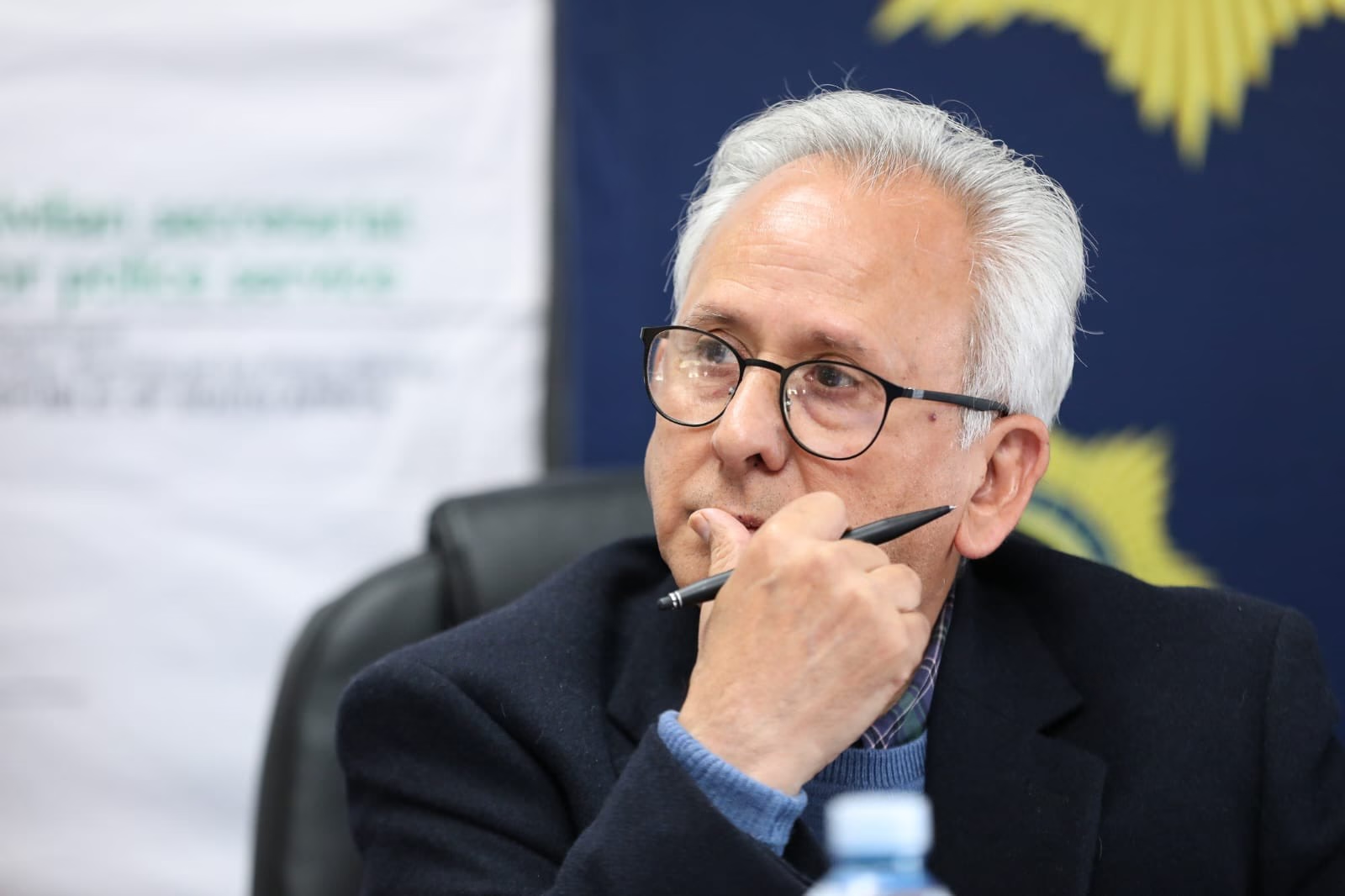The scale of organised crime in South Africa has once again been thrust into the spotlight, as the Global Initiative Against Transnational Organised Crime (GI-TOC) revealed that Cape Town’s gangs are using smuggling routes from Namibia to stockpile weapons.
International crime expert Mark Shaw of GI-TOC noted that South Africa ranks seventh on his organisation’s global crime index, placing it alongside nations long associated with organised violence. Shaw compared the country to “Colombia, Mexico, and Italy” and emphasised that a “joined-up, strategic response” is urgently required to confront the escalating crisis.
Shaw met with Acting Police Minister Firoz Cachalia, Police Oversight and Community Safety MEC Anroux Marais, and Western Cape Premier Alan Winde on Wednesday. Their discussions coincided with the release of the province’s latest Policing Needs and Priorities (PNP) report, which detailed how underfunding, inadequate staffing levels, and relentless gang activity continue to undermine policing efforts.
The report carried a stark warning: unless systemic reforms are introduced, communities across the Cape Flats will remain caught in a relentless cycle of violence and fear. Provincial officials stressed that new strategies are essential if the state hopes to disrupt entrenched criminal networks.
GI-TOC uncovered that trucks transporting legitimate goods such as flowers and fruit are being exploited to conceal firearms smuggled from Namibia. These weapons are then channelled into Cape gangs.
According to the report:
“No single gang monopolises this smuggling route. Gangs in the Grassy Park area of Cape Town, such as the Junky Funky Kids (JFKs) and the Six Bobs, were frequently mentioned as being among the recipients of the weapons. The owners of one of the trucking companies, implicated in the smuggling, reportedly have close family ties to the JFKs. The leadership of the Six Bobs reportedly received more than 100 firearms in a single shipment in 2022. Larger shipments are split among the leaders of different gangs.”
While most of the Namibian-sourced firearms seized in South Africa have so far been pistols, GI-TOC cautioned that the country is becoming an emerging source of higher-grade weapons, including AK-47 assault rifles.
Western Cape Remains at the Epicentre
The PNP report confirmed that 90 percent of South Africa’s gang-related murders occur in the Western Cape, underscoring the province’s unique exposure to organised criminal violence.
Premier Winde acknowledged that the problem continues to threaten communities and requires collective solutions.
“We can only deal decisively with this issue if we work closely with the South African Police Service, private sector, municipalities, civil society, and faith-based organisations,”
he said.
His remarks highlighted a call for partnerships beyond law enforcement, recognising that the roots of organised crime are as much social and economic as they are criminal.
A Growing Threat
Experts argue that the flow of weapons into South Africa from Namibia signals a worrying trend: established trade networks, originally designed for commerce, are being manipulated by criminal syndicates. With multiple gangs drawing on the same routes, the risk of escalating violence is high.
GI-TOC’s findings raise critical questions for South Africa’s leadership: How can policing keep pace with the sophistication of international networks? Can government address resource shortages quickly enough to protect vulnerable communities? And what role should civil society and private stakeholders play in stemming the tide?
For now, Cape Flats communities remain on edge as authorities weigh how to implement coordinated measures in the face of a well-resourced and adaptable threat.

















